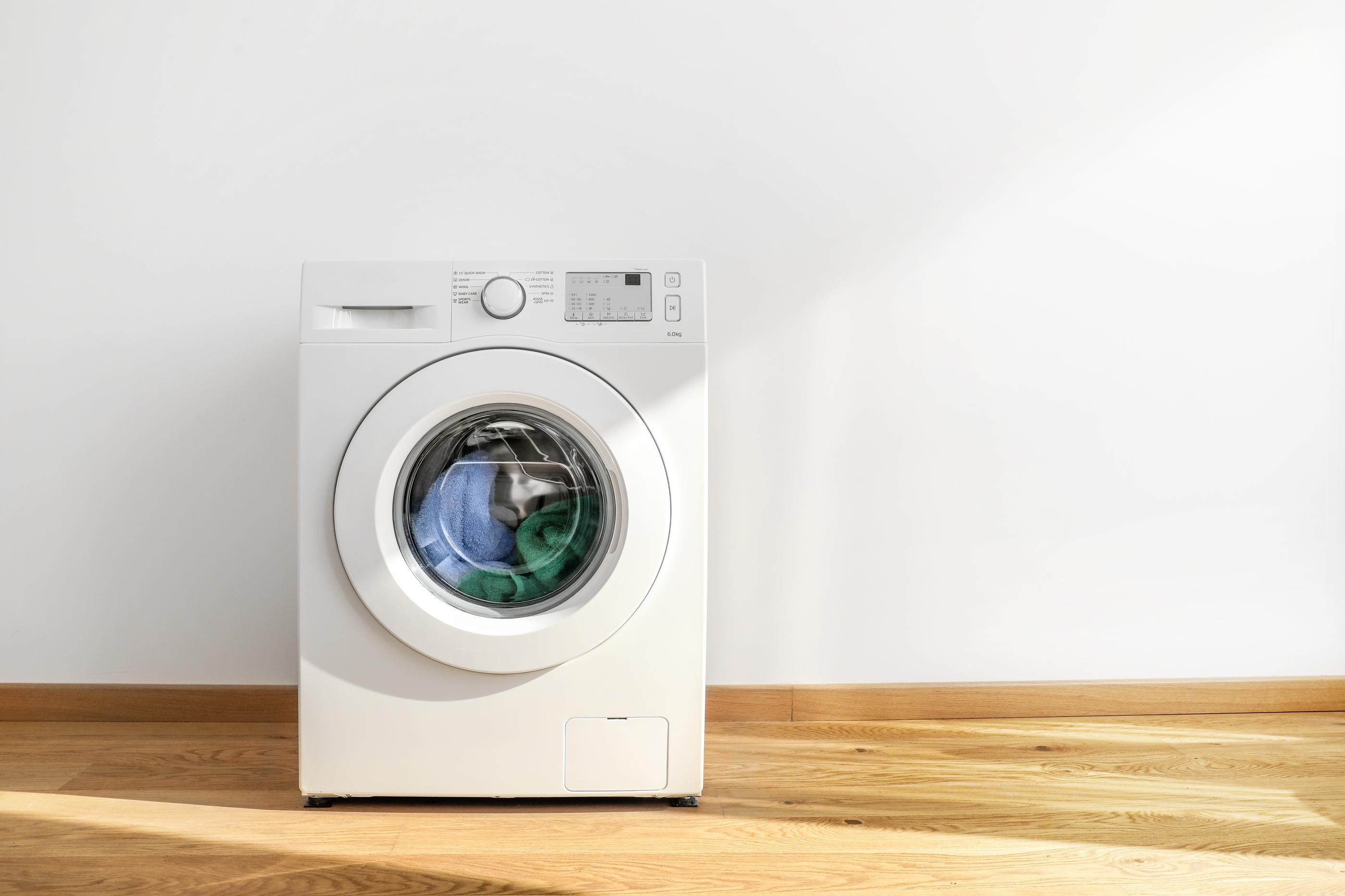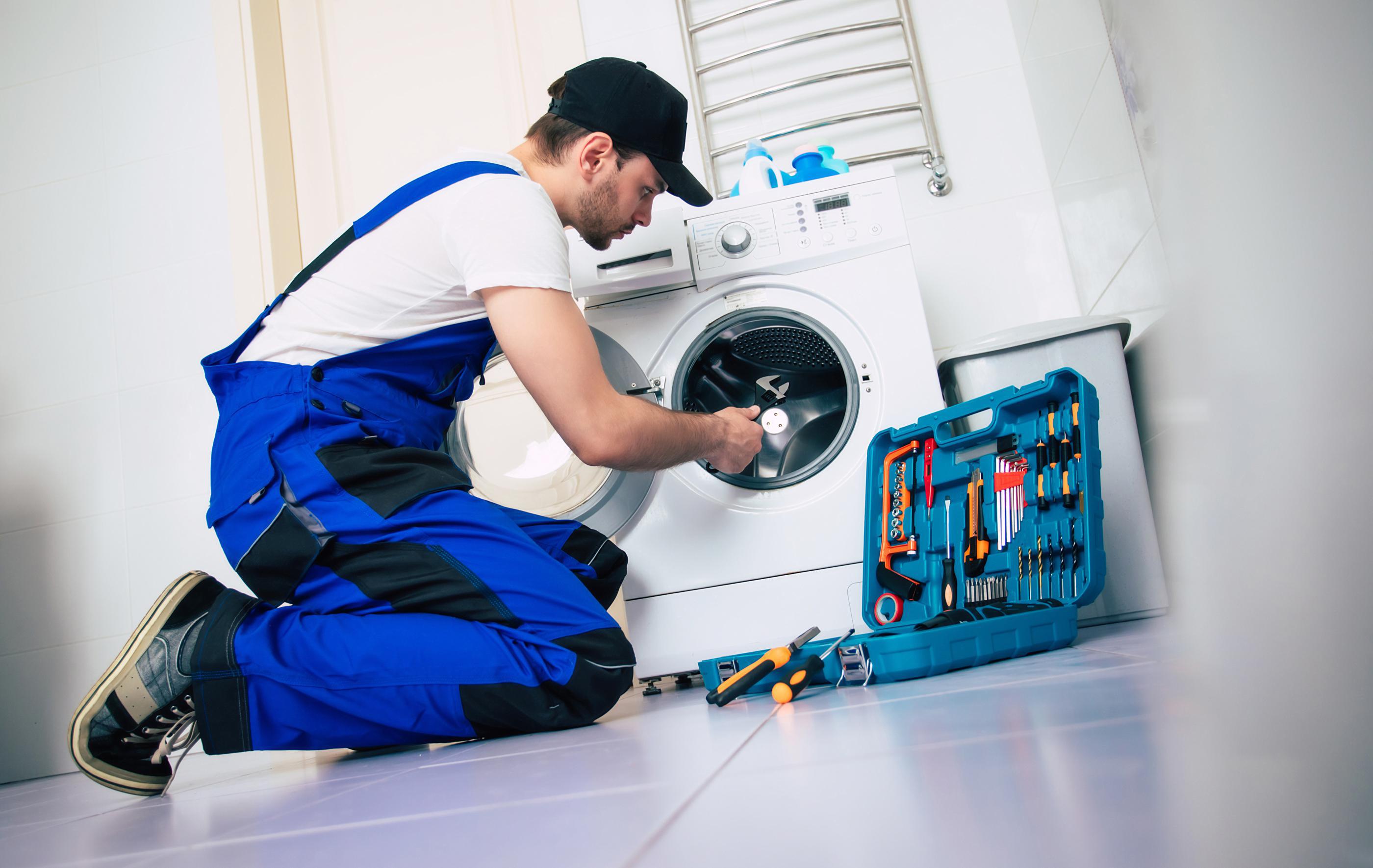Common Washing Machine Problems and How to Fix Them
June 4, 2024
Washing machines are arguably among the most essential appliances in every home. They handle the dirty work of cleaning our clothes day in and day out. Yet no matter how advanced they become, washing machine problems are something that every homeowner has to deal with.
From an annoying noise here to a stubborn leak there, these issues can be extremely inconvenient and even cause property damage from moisture if not addressed. However, most common washing machine problems are simple enough that they can be diagnosed and sometimes fixed easily.
We’ll go through some of the most common problems that your washing machine might encounter and provide simple solutions to get your routine back on track. From easy troubleshooting tips to in-depth repair advice, let’s get started!
Washing Machine Not Starting
If your washing machine is not starting as it should, don’t panic. The fixes for this kind of problem are usually simple. First, make sure your washer is plugged in, and that you are using the right settings. Refer to the manual if you have one to help with this step.
If that doesn’t fix it, your washer might just be overheated. If it only stopped after doing a bunch of loads, give it a little break and return to your laundry schedule after it has some time to cool off.
One of the more advanced issues you might encounter is a malfunctioning lid switch, which can prevent the washer from filling properly. While you can try to replace the lid switch assembly, it can be a little complicated and might require a professional.
The next problem is a defective control board. This issue is another complicated one that can be caused by any loose wire between the control panel and the main electronic control board. Only do this if you have experience. Dealing with wires and electricity can be dangerous, so don’t hesitate to contact a professional.
Washer Is Creating Lots of Noise or Shaking

Loud noises caused by washing machines can be startling and cause a lot of stress. Hearing the washer seemingly smash against the dryer, floor, or even the wall is enough to make us drop everything and run to the machine, hoping nothing really bad has happened.
While this might seem like the scariest problem when you hear it for the first time, it is generally the mildest one. An unbalanced load is the usual culprit behind the noises you might hear. If your laundry is heavier on one side, the load becomes unbalanced.
The solution is simple: open the washer and redistribute the load.
The other most common cause of unbalanced loads is improperly set washing machine leveling legs. All four legs of the washer should have full contact with the floor.
This is pretty simple to check, just push down on the corners of your washer, and if it shakes, it's uneven. Most modern washers will have adjustable legs that you can use to level out everything. If your washer does not have this, you can DIY a shim or support under the legs to even them out.
Common Causes of Washing Machine Leaks
While the initial discovery of a leak can be a real headache, understanding the common causes can make fixing it a breeze. The first thing you need to know is that causes can vary from each washing machine type.
More than likely, you either have a top-load washer or a front-load washer. We’ll dive into the specific issues that both of these washers face and give you a detailed summary.
Top-Load Washer Leaks
Several things can cause a top-load washer leak. It can also leak from different places and get very frustrating. Let’s look deeper into each of these leaks.
Leaks At The Front of the Washer:
Clogged Overflow Tube
There are a few reasons why your washer might be leaking from the front. One of the biggest causes is a clogged overflow tube. Your overflow tube can get clogged when you use too much detergent during the wash.
This is especially easy to do if your home has a water-softening system. You can easily test if you’re using too much detergent by taking a freshly washed item and placing it in hot water. If the water becomes sudsy, you are using too much detergent.
Overloaded Washing Machine
Your washer can leak from the front if you are overloading it with laundry. Try running the washer again with a reduced load size which may solve any leaks.
Leaks at the Bottom of the Washer:
Water Pump Damage:
If your washing machine is leaking from the bottom, it’s more than likely that the water pump is damaged. This part is responsible for circulating all the water through the washer.
Unfortunately, this fix requires a repair professional. If you are experienced with these kinds of repairs or know the exact part that fits your washer, you might have an easier time with a fix.
Clogged Drain Hose:
The drain hose in your washing machine is responsible for draining the water out of your washer once the cycle is complete. A clogged drain hose can cause issues that can lead to a leak from the bottom of your washing machine.
Front-Load Washer Leaks
Just like a top-load washer, a front-load washer is susceptible to a variety of leaks that can come from different places on the washer. Here are a few of the most common issues:
Leaks at the Front of Washer:
Unsealed Gasket:
The gasket is just a technical term for the rubber seal on your washer. If the door seal on your front-load washer is filled with soap and soil, the seal will leak. It is crucial to clean the gasket every week and keep it well-maintained.
If you have a leak in the front, inspect your seal for any damage. If there is no visible damage, give it a good clean and run your washer again to see if the leak continues.
Leaks at the Back of Washer:
Unsecured/Loose Hoses
The most common issue that a washer leaking from the back faces is a loose or unsecured hose. Move your washer a little to the front so you can see the hoses. There are two main hoses to check.
The first is the hose that connects to the drainpipe, which allows water to exit your washing machine. Make sure that it is fully inserted and all the connections are tight. If it continues leaking, the drainpipe is probably clogged and does not allow water to continue down the pipe.
The second hose to check is the fill hose. This hose connects your washer to your hot and cold water supply. To check this part, first turn off your water supply and remove the hose.
The next step is to look over the rubber washers on the hose. If they’re in bad shape or completely missing, you need to get new rubber washers and replace the old ones. If the rubber washers look good or your washing machine is still leaking after replacing them, you might have to replace the whole hose.
Washing Machine Giving Off A Bad Smell

Due to their design, this problem typically occurs with front-load washers. Front-load machines are sealed around the door to prevent leaks. The moist environment around the door boot seal can quickly cause mold or mildew to form, which causes the smells. Here’s how you can fix the smell and avoid it in the future.
Fixing Bad Smells in a Front Load Washer
What You’ll Need:
- A gallon of warm tap water
- ¾ cup of liquid chlorine
- Protective gloves
- A rag
- Plain water
Instructions:
- First, empty your washer from any clothes, and fabrics that might be in it.
- Mix ¾ cup of liquid chlorine in 1 gallon of warm tap water.
- Put on some protective gloves and start wiping the folds around the outer edge of the door boot.
- Keep that solution on for about 5 minutes.
- Once 5 minutes have passed, you can rinse with plain water.
To go the extra mile, you can also run a normal wash with a washer cleaner tablet using hot water.
To avoid the smells in the future, you can leave the door slightly open on your washing machine to air dry properly.
Trust Benjamin Franklin Plumbing To Fix Your Washer
Washing machine problems are an inconvenience for every homeowner. Benjamin Franklin Plumbing has seen every issue with washers and has helped homeowners with pesky leaks and noises for years.
When it comes to leak detection, we’re the experts you can count on. If you’re unsure of how to fix your washing machine, don’t hesitate to contact the professionals. We have the knowledge, experience, and the tools to help fix all of your problems. Call or make an appointment today!